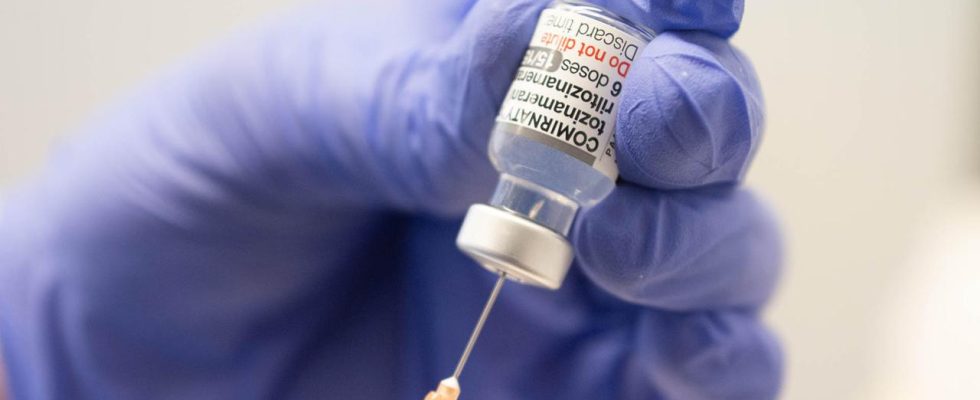In the middle of the pandemic, the EU had concluded supply contracts for their vaccine with BioNTech/Pfizer – but since then demand has fallen sharply. Apparently, an agreement has now been reached on reducing and extending the quantities.
According to a report, the EU has agreed with Pfizer and BioNTech on changed conditions for the delivery of the corona vaccine. As the Reuters news agency reports, citing an insider, the EU will have to take fewer doses from the two pharmaceutical companies in the future. At the same time, the deadline for the purchase has been extended to 2026, said a person familiar with the talks.
The agreement will be officially announced shortly. This was preceded by months of negotiations, as the governments of the EU member states had put pressure on Brussels because of the global oversupply of corona vaccines. The original contract was signed in May 2021 in the middle of the corona pandemic and committed the EU to buy 900 million doses of vaccine from Pfizer/BioNTech by the end of this year with an option for 900 million more doses.
Demand for vaccine down
At least half of the first 900 million doses have yet to be delivered as demand for them has fallen over the past year. The EU did not use the option for the additional doses. According to the insider, the new rules now mean that the number of cans the EU still has to buy will be reduced by a third. However, a fee must be paid for each canceled dose.
A spokesman for the EU Commission said the talks were ongoing and confidential. A spokesman for Pfizer made a similar statement. No comment was initially available from BioNTech.
Probably savings for Germany possible
According to information from the ARD Capital Studios a reduction and extension of the delivery quantities. The background to this are the results of the negotiations by the EU Commission on adjustments to the contracts, the dpa news agency also reports.
According to documents for the Budget Committee of the Bundestag, Germany will probably only have to purchase 50 percent of the contractually agreed quantities. The German payment obligation to the manufacturer Pfizer/BioNTech of 2.1 billion euros will be reduced by a total of 500 million euros. In addition, downsizing and stretching supplies over three years could save on disposal costs that would otherwise likely have been incurred if cans could not be vaccinated and had to expire.
A confirmation from the Federal Ministry of Health is not yet available. However, it stated that the EU negotiations were in the final stages.

